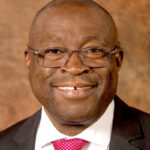Higher Education, Science and Innovation Minister, Dr Blade Nzimande, says his ministry implementing measures to close the gender gap within this sector.
Nzimande said there are a number of women graduates outperforming their male counterparts in the science, technology, engineering and mathematics (STEM) field, regardless of the high number of male students.
This is according to the Post School Education and Training (PSET) Macro Indicators Trends report (2010 to 2019).
Nzimande said this trend is also observed at PhD (Doctor of Philosophy) level, where there is a narrowing of the graduations gap.
“HEMIS [Higher Education Management Information System] data show that the number of women PhD graduates in public universities increased from 1 182 in 2016 to 1 540 in 2020, accounting for 42% and 43%, respectively, of the total number of PhD graduates.
“Consistent with the overall PhD graduation and enrolment trends, women PhD graduations in Science, Engineering and Technology (SET) accounted for between 40% to 43% of the total SET PhD graduates,” Nzimande said.
He said it is anticipated that the overall female PhD graduations and enrolments will increase in response to the ongoing support interventions given.
The PSET Macro Indicators Trends report also observes that access to the PSET system generally favours women over males, with the Gender Parity Index (GPI) for the PSET system being among the highest in the world.
Nzimande said within the university sector, female students continue to be in the majority in all major fields of study that include Business and Management, Education, and the Humanities.
“The Ministerial Guidelines on Achieving Equity in the Distribution of Bursaries and Scholarships (2013), and its successor, the DSI-NRF [Department of Science and Innovation-National Research Foundation] Postgraduate Funding Policy, both set an equity target of a minimum of 55% of female postgraduate students receiving support.
“The 55% female target at Honours and Masters levels was achieved soon after the policy was introduced, while there was some lag at PhD level. Nevertheless, the target of 55% female students supported at PhD level was achieved for the first time in 2020 and for the second year running in 2021,” Nzimande said.
Flagship research grants programmes
In addition to post-graduate support, the Department of Science and Innovation (DSI), through the National Research Foundation (NRF), implements two-flagship research grants programmes, including the Thuthuka Programme and Black Academics Advancement Programme (BAAP), which support young and emerging researchers holding academic or research positions at South African public universities and public research institutions.
“Over the past three years, the Thuthuka Programme and BAAP have funded 1 849 emerging researchers’ grants for SA citizens and permanent residents, and of these, 1 173 went to women.
“Increasing the number of black women in research and academia is critical for promoting the participation of young women in STEM fields,” Nzimande said.












